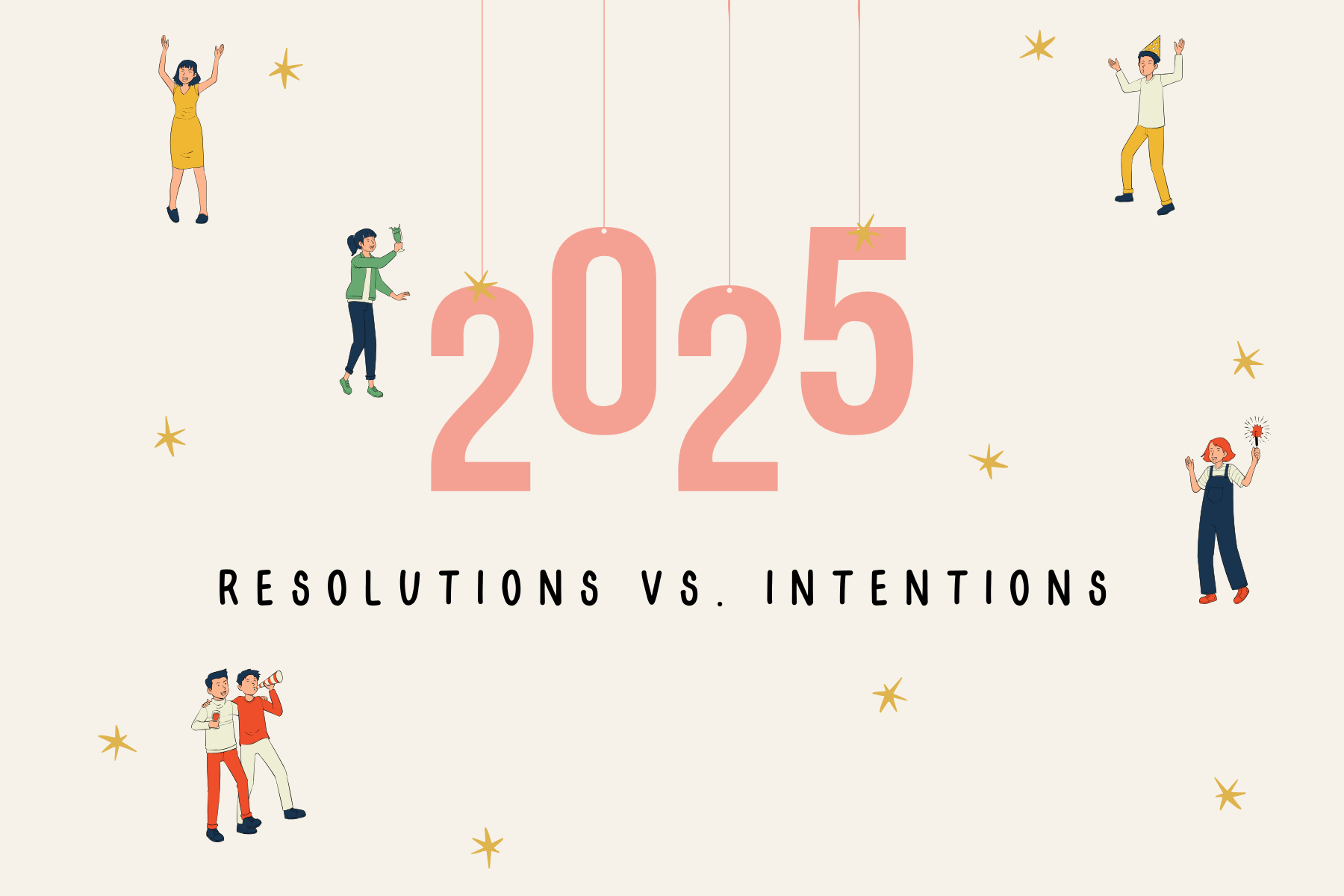Welcome to 2025! Traditionally, this is the time for New Year’s resolutions - promises we make to ourselves in the hope it will lead to significant change. While these often start with enthusiasm, they frequently fade within a month or two. This is where a New Year’s intention could be beneficial, offering a more sustainable and forgiving approach to personal growth.
The Problem with Resolutions
New Year’s resolutions are typically framed as a definitive goal:
-
"I will lose 5kgs by March."
-
"I will save $500 every week."
-
"I will go for a run every morning."
These statements reflect a desire to fix a problem and are often rooted in self-criticism. While this can be motivating, resolutions tend to:
-
Feel Rigid: Resolutions lack flexibility, leaving little room for adjustment if circumstances change.
-
Encourage All-or-Nothing Thinking: Miss a workout, treat yourself to something new, or go out to dinner with friends, and it’s easy to feel like you’ve failed entirely, leaving you feeling back at square one and unable to start again.
-
Lack Emotional Connection: Many resolutions focus on outcomes rather than the deeper "why" behind the goal, making them harder to sustain.
-
Promote Guilt: Falling short of a resolution goal can lead to feelings of shame and self-doubt, undermining confidence.
Why Intentions Are Better
Intentions shift the focus to embracing a mindset or value. They emphasise how you want to feel and the actions that align with your broader sense of purpose.
-
“I intend to nourish myself with healthy foods for most of the week.”
-
“I want to make movement a consistent and enjoyable part of my life.”
-
“I will make myself a budget to set aside some money for the little things I enjoy.”
Here’s why intentions are a better approach:
-
Rooted in Self-Compassion: Intentions encourage you to honour your current self rather than focusing solely on the changes you need to make. They’re about progress, not perfection.
-
Flexible and Adaptable: Life is unpredictable, and intentions allow you to adjust course without feeling like you’ve failed.
-
Focus on Growth: Intentions emphasise the journey and the habits you cultivate along the way, making it more sustainable.
-
Create a Positive Framework: Intentions highlight what you want to embrace, such as mindfulness, health, or connection.
How to Set Your Intentions for the New Year
-
Reflect: Look back at the past year and identify what worked well, what was challenging, and what you’d like more of in your life.
-
Connect to Your Values: Think about what matters most to you and focus your intentions around those values.
-
Keep It Open-Ended: Allow your intentions to be broad enough to grow with you throughout the year.
-
Revisit Regularly: Make time to check in with your intentions, whether monthly, weekly, or even daily, to keep them alive and evolving.
Embrace the New Year with Grace
While resolutions can feel like rigid commitments, intentions invite us to live more purposefully. They remind us that growth is a process, and that every small step forward is what matters most. By setting intentions, you allow yourself to approach the new year with curiosity, flexibility, and self-compassion, making it easier to stay aligned with what truly matters and help you celebrate your journey and growth.



